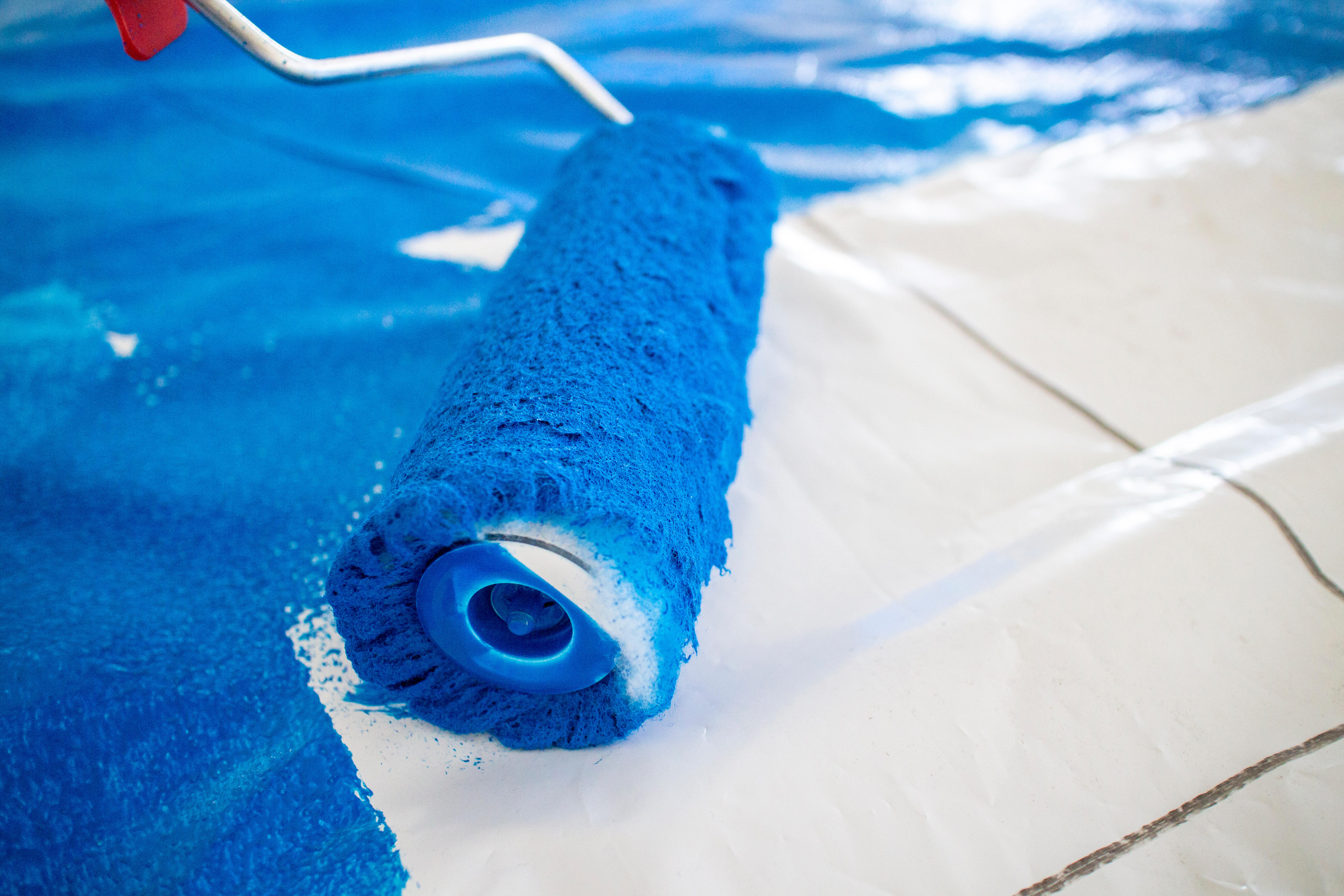How to clean a paint roller – and keep it in top condition
Take a look at our advice on how to clean a paint roller and ensure it’s ready for the next decor task


Design expertise in your inbox – from inspiring decorating ideas and beautiful celebrity homes to practical gardening advice and shopping round-ups.
You are now subscribed
Your newsletter sign-up was successful
Want to add more newsletters?

Twice a week
Homes&Gardens
The ultimate interior design resource from the world's leading experts - discover inspiring decorating ideas, color scheming know-how, garden inspiration and shopping expertise.

Once a week
In The Loop from Next In Design
Members of the Next in Design Circle will receive In the Loop, our weekly email filled with trade news, names to know and spotlight moments. Together we’re building a brighter design future.

Twice a week
Cucina
Whether you’re passionate about hosting exquisite dinners, experimenting with culinary trends, or perfecting your kitchen's design with timeless elegance and innovative functionality, this newsletter is here to inspire
Wondering how to clean a paint roller properly? Taking care of decorating tools gives them a longer life avoiding costly early replacement, and keeping them pristine is a key element in achieving a great finish in every task.
Speedy action is necessary after painting a room to prevent paint drying on to the roller. Cleanup is easy – although exactly what you need for the job depends on the type of paint used.
Our guide has all the information necessary to complete the task quickly and efficiently and ensure you’re ready to go the next time you’re painting a wall.
How to clean a paint roller
A roller should be cleaned as soon as you have completed the task whichever paint finish you have used. Be conscious of the type of paint you have been applying with the roller so you can clean correctly. It might be either water-based paint (latex paint), or oil-based paint. The latter requires a solvent to remove it.
This is how to clean a paint roller step by step.
1. Remove paint
Put on rubber gloves to protect your hands before you start cleaning a roller, then begin by removing paint – whether water or oil-based – from the roller. The porous texture that holds a lot of paint and makes painting with a roller a sound choice for large areas means there will be excess left on it.
Use a putty knife or invest in a roller cleaner – we like the ROLLINGDOG 4-in-1 paint tool cleaner from Amazon. Hold the roller upright over the paint can and scrape downwards so the excess paint goes back into the can. ‘Scrapers are usually metal so be sure not to use too much force as you may damage the roller,’ says Michael Rolland, paint expert and MD of The Paint Shed.
Design expertise in your inbox – from inspiring decorating ideas and beautiful celebrity homes to practical gardening advice and shopping round-ups.
The paint can should be stored safely for use again but, when the times comes, make sure to dispose of paint conscientiously.
2. Rinse water-based paint from a roller
If you’ve been using water-based paint, you can now wash the roller. ‘Rinse the roller out with cold water first, removing as much of the remaining paint as possible before using warm water with a small amount of dish soap,’ says Kevin O'Donnell, Crown technical demonstrator. ‘Hot water too soon tends to quickly congeal/set/dry certain paints within the sleeve making cleaning more difficult.’
3. Clean oil-based paint from a roller
Once you have removed excess oil-based paint from a roller it will need to be cleaned with a solvent such as mineral spirits or a specialist brush cleaner.
Use a container sized to just fit the roller to ensure only the minimum amount of solvent is used. Add sufficient mineral spirits or brush cleaner to cover the roller. ‘Work the spirits through the fibers of the paint roller,’ says Michael Rolland. ‘This will take around five to 10 minutes. Remove the roller from the mix and use your gloved hands to squeeze out as much of the excess as possible.’
Pour the used solvent into a container that can be sealed, then wipe out the first container with a rag, and add fresh solvent to it and clean the roller as before. This solvent can also be added to the first batch afterwards. The paint will settle at the bottom, and the solvent can be kept for reuse.
Note that you should never pour mineral spirits down the drain if you do want to dispose of them. Check with officials locally to find out how you should safely get rid of hazardous materials.
Rinse the roller thoroughly using warm soapy water. Squeeze to remove as much water as possible.
4. Dry the roller
Whether you’ve cleaned water-based or oil-based paint from a roller, next remove the sleeve of the roller so it can dry thoroughly. This should be done by placing it on its end.
5. Clean the frame and handle
To clean the roller frame and handle if you’ve been painting with water-based paint, use warm soapy water and a sponge. Rinse with clean water and leave to dry.
The frame of a roller used to apply oil-based paint should be cleaned with solvent applied using a rag.
Is it worth washing a paint roller?
It is worth washing a paint roller. Care for your painting tools and you’ll save money because they’ll last. They’ll also remain ready to use so you don’t have to go shopping before embarking on a project, and, of course, clean tools will help you do a professional job next time you are painting.
Do you have to wash paint rollers after every use?
Paint rollers should be washed after every use. There is an exception to the rule, though. If you’re taking a break and job isn’t finished, then you don’t need to wash the paint roller right away.
‘Put the roller in a plastic bag, being sure there are no holes, and knot it around the handle to ensure the paint doesn’t dry,’ recommends Michael Rolland, paint expert and MD of The Paint Shed. When the job’s finished, you will need to clean the roller thoroughly, of course.

Sarah is a freelance journalist and editor. Previously executive editor of Ideal Home, she’s specialized in interiors, property and gardens for over 20 years, and covers interior design, house design, gardens, and cleaning and organizing a home for Homes & Gardens. She’s written for websites, including Houzz, Channel 4’s flagship website, 4Homes, and Future’s T3; national newspapers, including The Guardian; and magazines including Future’s Country Homes & Interiors, Homebuilding & Renovating, Period Living, and Style at Home, as well as House Beautiful, Good Homes, Grand Designs, Homes & Antiques, LandLove and The English Home among others. It’s no big surprise that she likes to put what she writes about into practice, and is a serial house renovator.